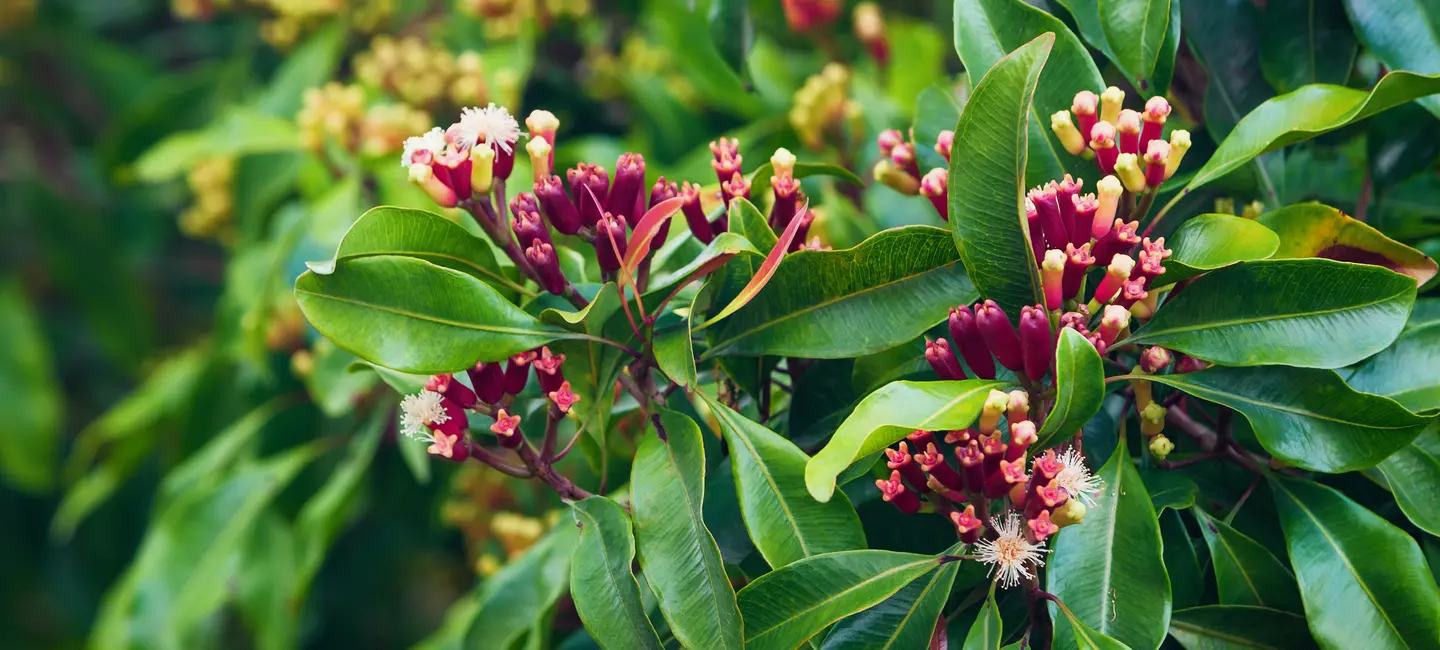
Clove (Syzygium aromaticum) is a tree native to Indonesia. Its dried flower buds are a popular spice and are also used in Chinese and Ayurvedic medicine.
Clove oils, dried flower buds, leaves, and stems are used to make medicine. Clove oil contains a chemical called eugenol that might help decrease pain and fight infections. Clove is also a popular ingredient in cigarettes.
People commonly use clove for toothache, pain during dental work, dental plaque, hangover, indigestion, and many other conditions, but there is no good scientific evidence to support these uses.
Is It Effective?
There is interest in using clove for a number of purposes, but there isn't enough reliable information to say whether it might be helpful.
Is it Safe?
When taken by mouth: Clove is commonly consumed in foods. There isn't enough reliable information to know if taking clove in larger amounts is safe or what the side effects might be.
When applied to the skin: Clove oil or cream containing clove flower is possibly safe. But applying clove oil in the mouth or on the gums can sometimes cause irritation and gum damage. Applying clove oil or cream to the skin can sometimes cause burning and skin irritation.
When inhaled: Smoke from clove cigarettes is likely unsafe and can cause side effects such as breathing problems and lung disease.
Special Precautions & Warnings:
Pregnancy and breast-feeding: Clove is commonly consumed in foods. There isn't enough reliable information to know if clove is safe to use in larger amounts when pregnant or breast-feeding. Stay on the safe side and stick to food amounts.
Children: Clove oil is likely unsafe to take by mouth. Even small amounts of clove oil can cause severe side effects such as seizures, liver damage, and fluid imbalances.
Bleeding disorders: Clove oil contains a chemical called eugenol that seems to slow blood clotting. Taking clove oil might cause bleeding in people with bleeding disorders.
Surgery: Cloves contain chemicals that might affect blood sugar levels and slow blood clotting. It might interfere with blood sugar control or cause bleeding during or after surgery. Stop using clove at least 2 weeks before a scheduled surgery.
Ibuprofen (Advil, others)
Interaction Rating=Minor Be watchful with this combination.
Adding ibuprofen to clove oil before applying it to the skin might increase how much ibuprofen gets absorbed through the skin, possibly increasing side effects.
Medications for diabetes (Antidiabetes drugs)
Interaction Rating=Moderate Be cautious with this combination.
Clove might lower blood sugar levels. Taking clove along with diabetes medications might cause blood sugar to drop too low. Monitor your blood sugar closely.
Medications that slow blood clotting (Anticoagulant / Antiplatelet drugs)
Interaction Rating=Minor Be watchful with this combination.
Clove might slow blood clotting. Taking clove along with medications that also slow blood clotting might increase the risk of bruising and bleeding.
Herbs and supplements that might lower blood sugar: Clove might lower blood sugar. Taking it with other supplements with similar effects might lower blood sugar too much. Examples of supplements with this effect include aloe, bitter melon, cassia cinnamon, chromium, and prickly pear cactus.
Herbs and supplements that might slow blood clotting: Clove might slow blood clotting and increase the risk of bleeding. Taking it with other supplements with similar effects might increase the risk of bleeding in some people. Examples of supplements with this effect include garlic, ginger, ginkgo, nattokinase, and Panax ginseng.
There are no known interactions with foods.
Clove is a spice commonly used in foods. It's also available in mouthwashes, gels, creams, and oils. As medicine, there isn't enough reliable information to know what an appropriate dose of clove might be. Speak with a healthcare provider to find out what type of product and dose might be best for a specific condition.
Bourgeon Floral de Clou de Girofle, Bouton Floral de Clou de Girofle, Caryophylli Flos, Caryophyllum, Caryophyllus aromaticus, Clavo de Olor, Clous de Girolfe, Clove Flower, Clove Flowerbud, Clove Leaf, Clove Oil, Clove Stem, Cloves, Cloves Bud, Ding Xiang, Eugenia aromatica, Eugenia caryophyllata, Eugenia caryophyllus, Feuille de Clou de Girofle, Fleur de Clou de Girofle, Flores Caryophylli, Flores Caryophyllum, Gewurznelken Nagelein, Girofle, Giroflier, Huile de Clou de Girofle, Kreteks, Lavang, Lavanga, Oil of Clove, Syzygium aromaticum, Tige de Clou de Girofle.
Information on this website is for informational use only and is not intended to replace professional medical advice, diagnosis, or treatment. While evidence-based, it is not guaranteed to be error-free and is not intended to meet any particular user’s needs or requirements or to cover all possible uses, safety concerns, interactions, outcomes, or adverse effects. Always check with your doctor or other medical professional before making healthcare decisions (including taking any medication) and do not delay or disregard seeking medical advice or treatment based on any information displayed on this website.
© TRC Healthcare 2024. All rights reserved. Use and/or distribution is permitted only pursuant to a valid license or other permission from TRC Healthcare.
